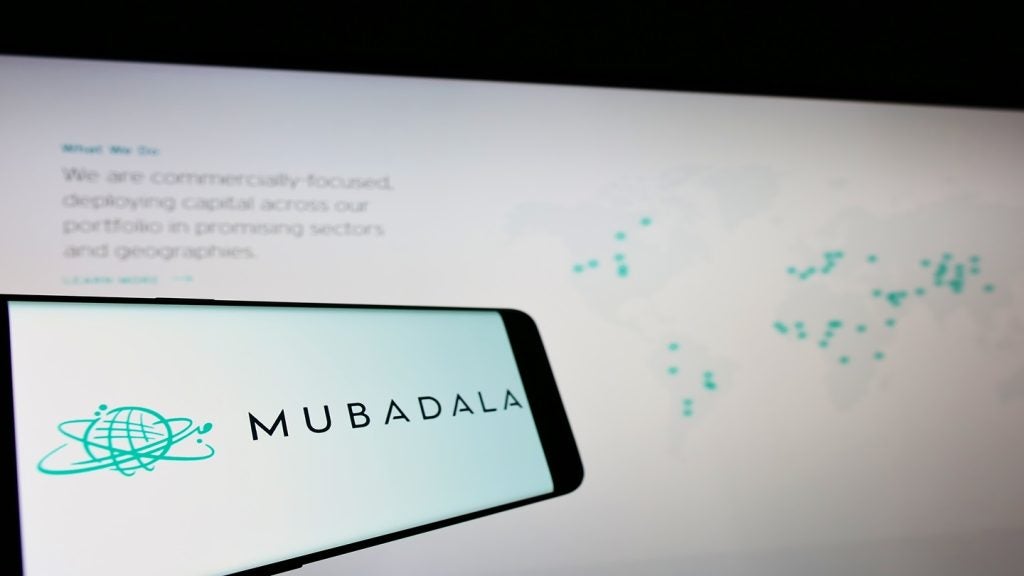The Private Banker International Global Wealth Summit 2013 held in Singapore last month brought together pivotal private banking industry leaders to engage in much needed discussion on evolving business models and the use of technology, the impact of regulatory complexity, and the unique proposition on ultra-high-net-worth clientele. Meghna Mukerjee and Sruti Rao report on key insights from the summit.
CEO Panel: The search for profitability
Speakers:
Peter Flavel, CEO, JP Morgan Private Wealth Management in Asia
Michael Blake, GM Asia, Coutts
Olivier Gougeon, Regional CEO Asia Pacific, Societe Generale Private Banking
Kong EngHuat, CEO, Singapore and South East Asia, EFG Bank AG
In reflection of the complexity of the regulatory landscape, keynote speaker Peter Flavel highlighted that maintaining industry fundamentals through this should be the key focus. Keeping clients at the heart of the business remains the priority of the bank, but incorporating the attention to compliance procedures into positive customer service is still an open issue.
Michael Blake of Coutts comments during the panel discussion that the regulations implemented are sensible in their intent; the challenge is not so much in the content of the regulation, it’s in the volume and timing at which they have to be implemented. Blake said: "The challenge for private banks across the board is to convert that compliance world into a positive client experience. The banks that get that right will end up with a stronger client proposition."
A poignant suggestion by Flavel was that of a standardised evaluation process and risk measures across banks for greater efficiency and stability across the system. "Does it make sense for all of us to come up with a risk rating in a different way? Can we have a day when just like a credit score, we can have an investment score, that we can agree on as an industry to determine who is a risky client."
The impact of the wave of consolidation of private banking units in non-core markets of banks was also discussed in the panel, and whether we have reached an inflection point in the industry.
Flavel said: "There is no doubt that the best place to be running a private bank right now is here in Asia. However, with the rising cost to income ratios, what used to be profitable in some cases, no longer is. Hence you see banks cutting out what we can call ‘peripheral activities’.
"What is core in Asia is still Hong Kong and Singapore. We are in an inflection point not in the sense that the world is going in a negative direction, but rather in that there is tremendous opportunity now, but we need to address it in the right way," he added.
Blake said: "We have already started to see the first wave of consolidation and the emergence of two distinct business models have come to front – the large universal banking model and the smaller boutique wealth management approach. The latter can no longer be all things to all people. The traditional model of having assets that are managed across markets is no longer useful, banks need to increasingly focus on a smaller number of markets where they can achieve critical mass, and serve high value clients with the whole range of wealth management services". Coutts went from what the CEO refers to as a ‘diaspora of clients’ across 150 markets, down to 50 markets over the past years, to bring greater focus on their core businesses.
Gougeon: "I don’t think size is everything, especially in Asia where cost-to-income ratios are increasing, we know there will be consolidation – just a matter of when and how."
How well do you really know your competitors?
Access the most comprehensive Company Profiles on the market, powered by GlobalData. Save hours of research. Gain competitive edge.

Thank you!
Your download email will arrive shortly
Not ready to buy yet? Download a free sample
We are confident about the unique quality of our Company Profiles. However, we want you to make the most beneficial decision for your business, so we offer a free sample that you can download by submitting the below form
By GlobalDataPANEL Discussion 2:Will the evolution of business models generate tougher competition or further differentiation?
Speakers:
Tan Su Shan, Group Head of Consumer Banking and Wealth, DBS Bank
Amit Gupta, CEO South East Asia, HSBC Private Bank
Justin Ong, Partner, PricewaterhouseCoopers LLP
Bertram Flores Sarmago, VP and Fixed Income Portfolio Strategist, State Street Global Advisors
The nature of the younger, tech-savvy clientele has changed the business model entirely. DBS Tan Su Shan expressed the astonishing rise of Asia’s digital revolution with a phenomenal population of smartphone users, that gives them an increasing niche. Rise of new Asian online brands who are going to ‘eat our lunch’, as the Singaporean PBI Outstanding Private Banker of the Year Award winner described. Non-traditional players such as Alibaba with 300m active users, these are microloans but their large margins will be easy to migrate into wealth management space.
DBS denotes a simple strategy -‘ innovate or die’. Technology has to be incorporated into the service model in order to relate to the new age of customers. This doesn’t go to say that human interaction with the RM will not be of value, but the digital revolution has to complement this service.
Rajesh Malkani , Standard Chartered Bank , highlighted that: "In three years smartphones and tablets did what mobile and televisions did in 10 years". According to a survey conducted by the bank, high-net-worth individuals (classified by StanChart as those with US$5m and above) spend 28 hours a week on a tablet or a smartphone; 88% suggest social channels are influential in decision-making, 60% will use topical discussions to make informed decisions.
Justin Ong said that according to PWC research, the astounding share that non-banks coming into the payment and banking space shows that they are already taking a share of the pie and it is only a matter of time before they come into wealth preservation.Technology has been the most significant spend for banks in recent years, with most of this spent inevitably on compliance activities. However, Ong showed optimism in that once the initial uphill struggle passes, it will be easier to migrate this technology into bigger opportunities.
The panellists concurred that the emerging affluent class, in key Asian markets such as Indonesia, India and China ,are the private banking market of tomorrow, and hence have to be addressed quickly and effectively in order to maintain share of wallet. Having the right digital strategy in tapping into such segments is a key enabler to success in these markets and hence, controls, talent and objectives should be centred around this new wave of technology.
PANEL DISCUSSION 3: Getting on the right side of regulation
Speakers:
Vincent Koo, Regional Head of Wealth Management Compliance, BNP Paribas Wealth Management
Stephen Bruce, Partner, Financial Services Tax, Ernst & Young Solutions LLP
Michelle Lau, Senior Director, Head of Wealth Planning South Asia, HSBC Trustee (Singapore) Ltd
Jay Krause, Head of Wealth Planning Asia, Withers Singapore
In light of the development of jurisdictions globally, Jay Krause of Withers Singapore underlined the biggest fear is having to comply with different versions of similar legislation. He said: "With distinct reference to FATCA, the UK bringing out an equivalent regime on tax transparency for instance, poses a challenge for the industry as accommodating two parallel regimes brings greater disparity in the reporting system."
But as Stephen Bruce, Ernst & Young, notes, operationally speaking this does become difficult for the institutions to manage, but from the regulator’s perspective, there is still consolidation on the goals of the regulatory bodies globally. "Whilst there is an increasing amount of regimes, it does keep coming back to the same issue. It’s just that the regulator has a different reason or a different political party has a different motivation for the introduction of new rules," he said.
Technology spend has evidently increased as a result of such complexity, points out Vincent Koo of BNP Paribas, and is a necessary investment to deal with the surge of regimes that have to be complied and managed. "It is driving up cost, but it is cost well spent, for firms with a long-term view," he said.
Singapore was echoed as a step ahead of the game with their regulatory developments, leading the fort in the region on inter-government organisations that are used. There is a greater unification of aims, transparency and co-operation among client banks through industry groups, namely the Private Banking Industry Group Singapore that has constant dialogue with stakeholders on the implementation of regulatory practices.
Panel 4: How to make UHNWIs a profitable segment to serve
Speakers:
Bryan Henning, head of global research and investments, Asia Pacific, Middle East and Africa, Barclays
Johnny Heng, deputy chairman, Coutts Institute South Asia
Anurag Mahesh, head of wealth management coverage, Asia Pacific, Deutsche Bank AG
This session touched upon how UHNWIs are a profitable segment to pursue for banks and wealth managers and how to find the right formulas to engage and deter them from looking elsewhere.
Henning said: "UHNW could want a variety of things and have different needs – from accountants all the way up to a family office. It is important for banks to marry up where they are strong and can add value.
He added: "Where lenders fall into a trap, is just going after the segment as a whole and not understanding their own strengths and capacities or how they can make it work across the front-end."
Henning also stressed that banks need to go beyond the traditional suite of standard brokerage productsfor this segment. "It is important for private bankers to understand the various needs of this segment instinctively, as clients in this position ‘are special and want to feel special’. So the biggest mistake for us is to go to them and show them all our standard products."
If private bankers are able to customise a suite of products for the UHNWIs, the payment of fees is "not so much of a problem" as "the last thing they want to know is someone simply wanting to push a product," said Henning.
For Deutsche Bank, UHNWIs are the target segment and Mahesh said the firm can "help in the wealth creation needs" of clients. "ECM, DCM, corporate finance, even when it comes to real estate services around the real estate manager and asset manager, we now provide- those are interesting conversations," he said. For the UHNWIs, the ’emotional connect with wealth creation’ is far more advanced than the emotional connect with wealth management, Mahesh commented."If you get that psychographic of this client, I think you’re going to be relevant."
The whole of the product pushing element in the UHNW is very hard to do, said Henning. He added that in practice, there are no rules of the relationship as private bankers often are very close to these UHNW clients throughout their whole wealth generation journey and are very trusted. But he added that the lender makes sure there is a framework in the investment bank and everyone knows who’s covering which industries so that there is an incentive for private banker to approach clients with specific content.
According to Heng, the model that seemed to work best was to have "clear ownership for each of these relationships" between clients and private bankers. He said that problems often arise when there is ‘lack of clarity among people within the whole setup’.
The panel touched upon how philanthropy is huge across the globe – particularly the US -and its importance as an emerging sector. Mahesh said the segment is still nascent but there has been traction in the last 18-24 months, particularly if there is a US connection in the company or the family of the UHNWIs.
The panel also touched upon how consortiums are emerging as a trend and Mahesh said though not a huge trend, it is developing, typically when it comes to equities. Henning agreed and said it can take many forms and be known by different names but it’s more the ‘icing and not the cake’.
PANEL DISCUSSION 5: Tip Top Tech
Speakers:
Money K, managing director, head of Global Next Generation, Citi Private Bank
Andrew Au, CEO, AG Delta
At the very outset, Money K, through his keynote speech, established what the Next Generation clients’ aspirations and behaviours are. He also went on to explain about the challenges the industry is facing as a whole to serve clientele.
According to research conducted by Citi Private Bank – where the next gen is prioritised as a dedicated business unit by itself – several new trends are increasingly emerging that need keeping up with. The lender conducts next gen programmes across the globe annually.
A top finding from Citi’s research for 2013 is that parental advice still drives investment decisions for the next gen (35%), who are ‘very consultative’ and equally decisive. Social media is also a big influencer for their decisions. These channels are heavily used by the next gen to keep in touch with peers as well. Citi has its own social media platform for this segment.
Money K stressed that Citi Private Bank’s next gen programmes, which provide networking opportunities, have emerged as "overwhelmingly helpful" for its clients.
Investment advice and banker access in a high tough, seamless, high quality way are also key for the next gen, according to Citi’s research. Banking at the branch does not appeal to this segment.
Through focus group discussions Citi has found clientele want global access to the lender’s research and ideas via their smart devices. They want integrated video chats, and prefer YouTube-style videos for research. They also want customisation and consolidation of accounts, alongside smart tools.
Money K suggested that private banks can digitise and streamline many administrative processes. He also stressed that private bankers will continue to be the most important point of contact, to drive the next gen relationships, despite technology being a powerful enabling tool.
Andrew Au, AG Delta, took the conversation forward focusing on how technology is required in the frontline. "The next gen wealth will force technology companies and financial firms to innovate."
Au emphasised how the next few years will be crucial for change as, currently, most technology spend for majority of the companies happen at the back-end.
He asked: "Which is the biggest investment – building technology for our clients or trying to build tools that can empower the frontline?" Money K agreed that there needs to be an urgent ‘technology revolution’, with non-banks eating into the private banks’ market share.
In terms of industry preparedness on the technology front, currently, Au said it’s a leadership responsibility to focus on innovation. "It is interesting," he said, "to compare global private banks with local institutions as the former has a large legacy structures to deal with while smaller banks can easily bring high touch solutions to market alongside providing relevant, proactive information in a timely fashion." However Au stressed that technology can aid but not replace private bankers.
Money K revealed that the next gen is looking for integrated, bundled products, which for banks can still be a challenge. According to Au, multi-channel access is key for clients. "There are sufficient, if not too many tools," Au added."But digital technology should make the tools intuitive for relationship managers. It’s not a matter of offering the top technology but making them more high touch." Money K agreed that it is about having both an appealing and efficient digital interface.
Money K’s key takeaway for banks was that technology departments of banks and bankers should communicate as the latter know the direct client needs and can valuably ideate around new products. Au agreed, also stressing that technology innovations should be focused on how help can be provided to bankers and not just the clients, so that technology solutions can improve RMs’ daily lives.
CEO Perspectives
The PBI Summit brought together industry leaders in the private banking and wealth management space and a lot of them had insightful notes to make about the industry in Asia as it stands today – its opportunities and challenges.
Consolidation being the current buzzword, CEO of private banking at HSBC Southeast Asia, Amit Gupta, said even though the phenomenon has been spoken about for long in Asia, there have been massive shifts in the industry landscapein the last 18-24 months. Gupta expected more shifts and consolidations to happen in the next five years, citing regulatory changes as a large aspect of it.
"From an industry point of view, going forward, the consolidation is real and it will be somewhat ferocious compared to what we’ve seen so far, which will be challenging for some players. But it will also be good for some, so there are going to be winners and losers," said Gupta adding that the focus, however, has to always remain on the customer.
Contrary to Gupta, Anurag Mahesh, managing director and head of global investment and key client solutions, Asia Pacificat Deutsche Bank, predicted the "frantic number of deals" that have taken place recently to possibly reduce, even though he did expect consolidation to continue. Mahesh stressed that regulatory changes have taken place in the right direction in Asia, creating an even playing field for foreign and local lenders.
According to Mahesh, the dynamics of Asian private banking has changed greatly over the years as money has continued to grow. From a resourcing perspective the shift has been towards quality and quantity and from a client perspective the dynamic has changed materially.
From a demographics point of view Asia is "extremely exciting" said Gupta, as there is keenness to acquire both financial and real assets in the region, with clients looking beyond traditional assets. "For these customers the sky is the limit and as a private banker, there are great opportunities," he said.
Su Shan Tan, group head of consumer banking and wealth management at DBS Bank, said in Asia, people are not necessarily born rich or second generation rich – a lot of them are first generation and the lender wants to be part of that wealth creation journey.
"Asian wealth is being created right now. Bringing the private bank together into the whole retail, consumer and wealth offering enables us to create that continuum. Clients could start small and grow with us," said Tan.
According to Tan, technology is a game changer as Asia is adopting technology innovation "at a rate faster than anywhere else in the world". She said: "Our customers are already looking at wealth management solutions online and if we don’t move with them on the digital channels, we will die."
Going forward, Mahesh said there will be more differentiation among the wealth segments, driven by higher cost income ratios. He also predicted a strong focus on content and execution driving strategy in the same way that strategy drives execution.
The rise of the Asian online brand giants from Wechat to Alipay is also a key market driver said Tan. "Non banks are coming into the wealth management space and if we don’t innovate they will eat our lunch so we have to innovate we have to move with the times," she added.







